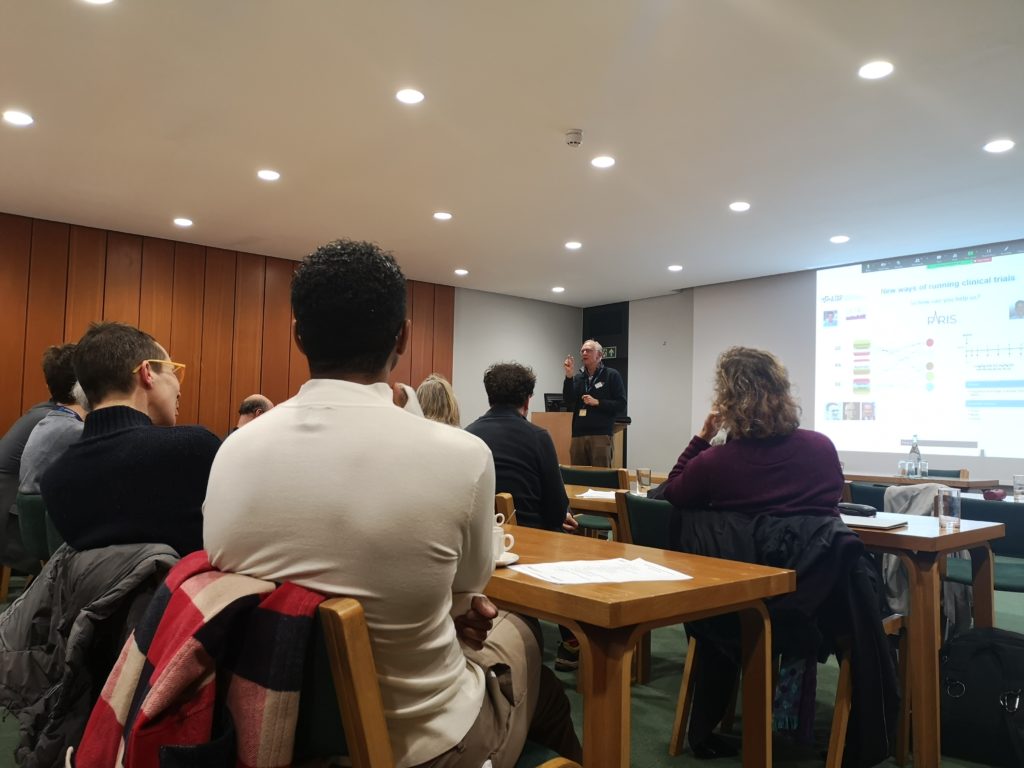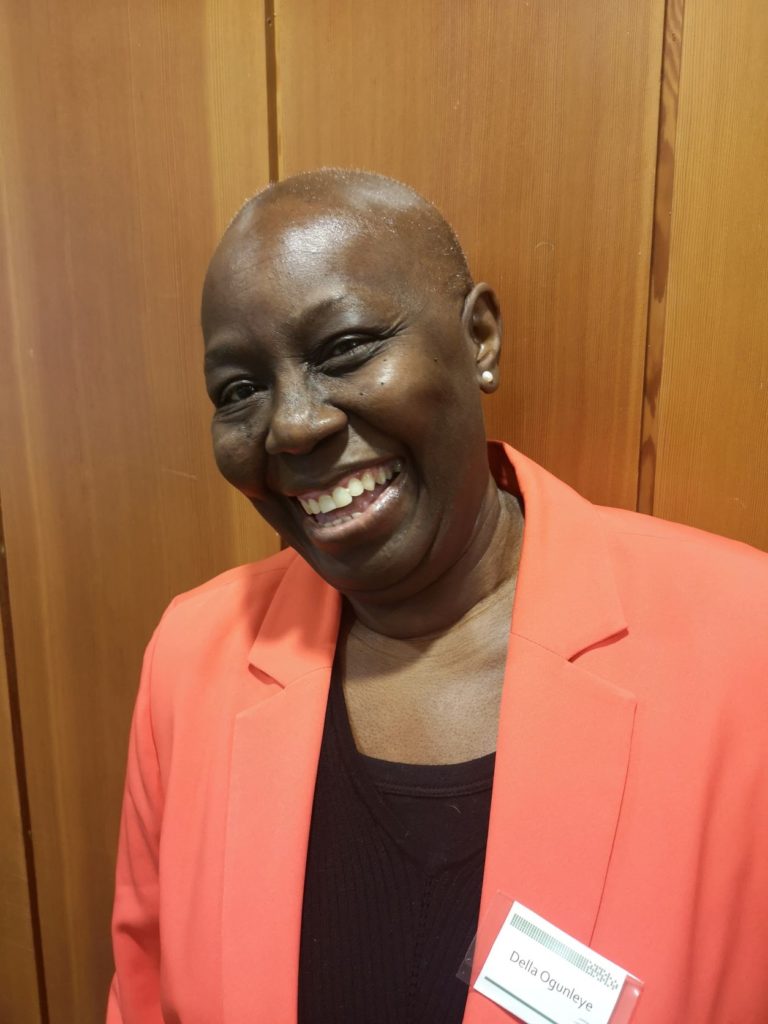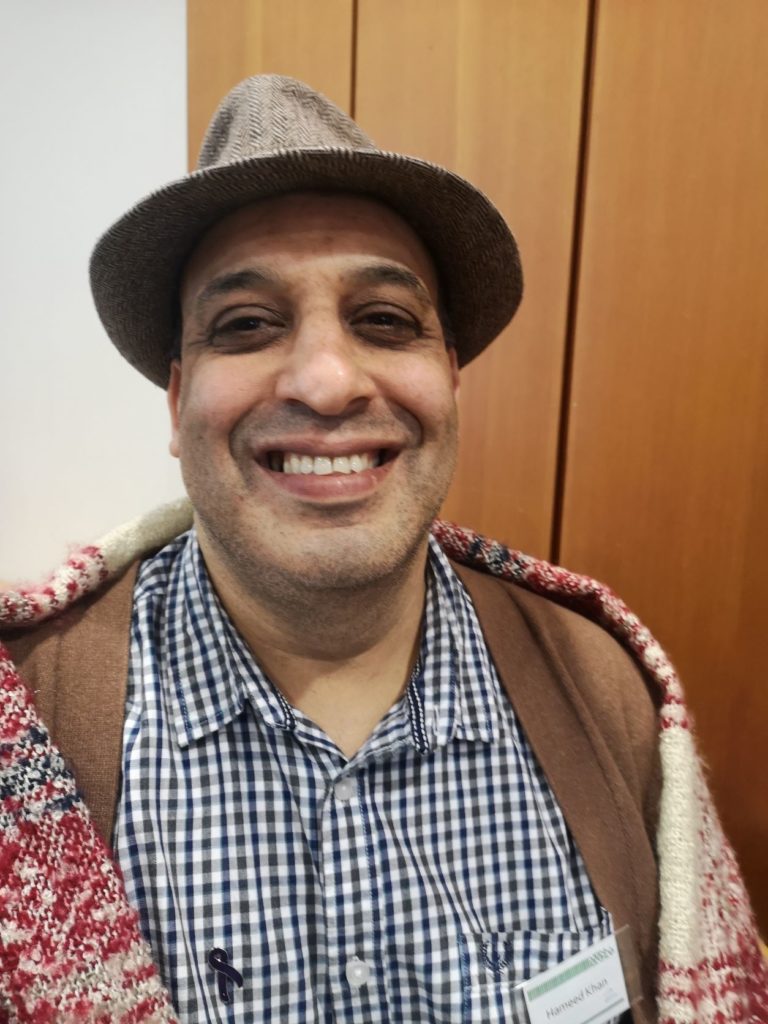Patient and public contributors have gathered with researchers in Oxford to discuss how patient and public involvement and engagement (PPIE) can be enhanced and play a bigger role in the new NIHR Biomedical Research Centres (BRC) when they begin next month.

The workshop at St Catherine’s College in Oxford was organised by the Oxford BRC and the Oxford Health BRC and attended by representatives from a wide range of PPIE groups who work with the BRCs’ themes and the wider research community in the University of Oxford.
There were talks by researchers and PPIE contributors, who explained how they had achieved more meaningful patient involvement in areas as diverse as sickle-cell disease, lupus and mental health conditions.
The directors of the two BRCs – Professor Helen McShane for the Oxford BRC and Professor John Geddes for Oxford Health BRC – outlined their aims when the new funding round gets under way on 1 December, and stressed how the two BRCs aim to work in a coordinated and complementary way.
“This was a great opportunity to thank our PPI contributors and for them to see the impact their involvement has made in different ways. It was also a chance to introduce them to the exciting work that will be happening in the new BRCs,” said Alexandra Almeida, PPI Manager for the Oxford Health BRC.
Rachel Taylor, Public and Community Involvement, Engagement and Participation Lead for the Oxford BRC added: “We wanted to not only tell our PPIE contributors about the wide range of new research that will be happening in Oxford, we are also keen to tap into their knowledge about how PPIE can improve it, and explore how we can get more patient and public contributors – especially from under-served communities – involved.”

One of the PPIE contributors attending was Della Dolapo (pictured left), who is a member of the BRCs’ Diversity in Research Group. She initially got involved in research when she had breast cancer 12 years ago and didn’t see her community represented in cancer research or PPIE groups. She says she sees her role as not only educating researchers about how to reach out to diverse communities, but also advocating with her own Nigerian community about the importance of getting involved.
“Things are much better than 2010, things are progressing,” she says. “I’m now going through chemo for ovarian cancer … I come from a community which says ‘you talk too much about cancer. You shouldn’t tell anybody’, but if you don’t talk about it, how will they meet your needs, how will they cater for you? That’s why I’ve put my name down for so many things – to be involved.
“I get abuse sometimes by my own community, but I didn’t tell the researchers, they wouldn’t know. People like me don’t participate in clinical trials, and it’s that lack of awareness,” Della explains.

Another member of the Diversity in Research Group who attended the workshop was Hameed Khan (pictured right), who got involved in research “to ensure that voices are representative of people and communities we don’t often see around the table, BAME, LGBT communities, people with limited English”.
“Through the PPI work, I’ve been able to understand the research work and how it influences change and brings about innovation. I’ve got a lot out of it – knowledge, skills, networks, confidence, being able to make a difference by being able to influence key decisions in how research takes place and also ensuring I’m a voice and advising how they can reach out to other groups that are not around the table.”
He said he hoped that the BRCs would build on the inclusiveness they had already achieved to “become world class in this area and set examples across the UK in how to be more inclusive, especially with groups that other organisations are struggling to reach. I want to go into the intersectionalities, so we’re not just saying Black, Asian and minority ethnic communities, but really looking at which communities within the BAME communities are very isolated or not involved and get more of those around the table.”